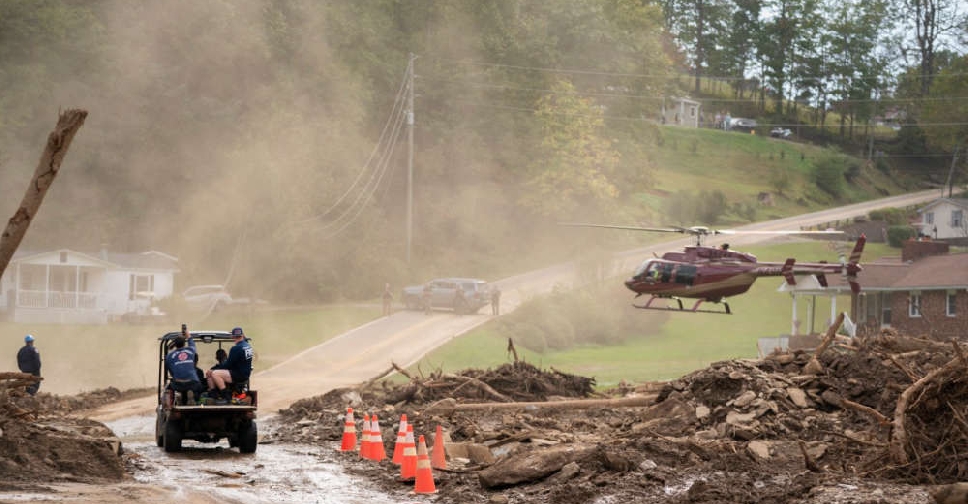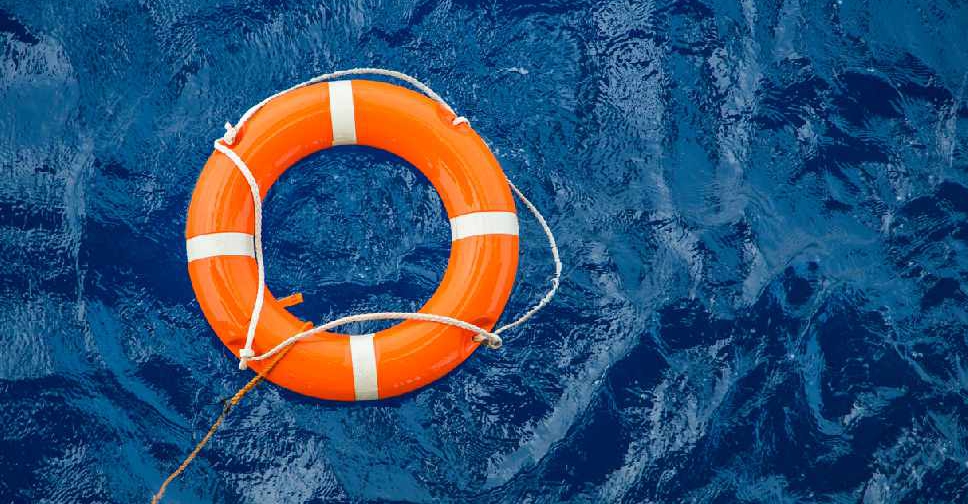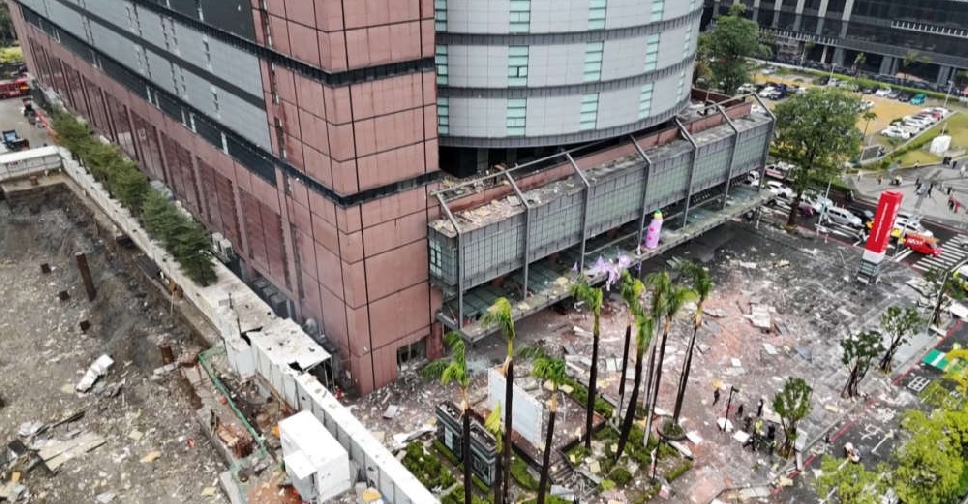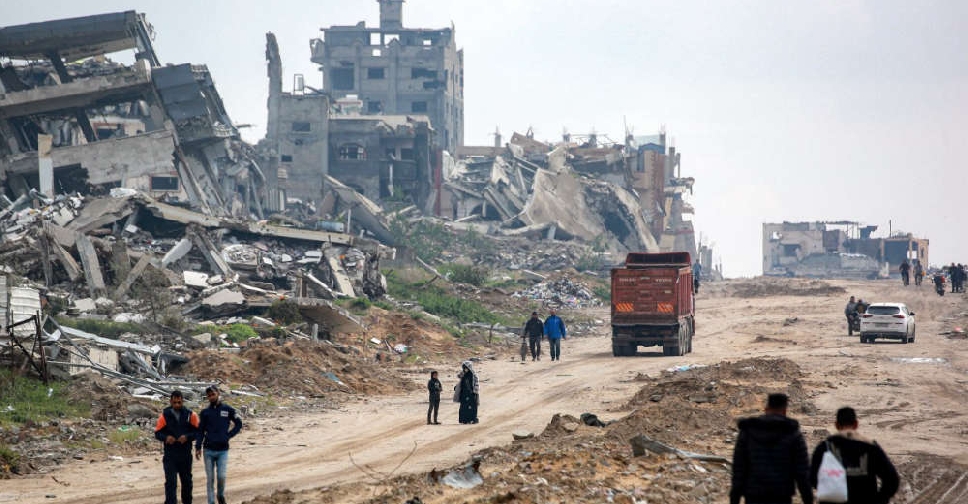
Rescue crews airlifted emergency food and water into remote North Carolina towns that were cut off and devastated by tropical storm Helene that turned the western part of the state into a "post apocalyptic" landscape.
Helene was a hurricane when it slammed into the Florida Gulf coast on Thursday, tearing a destructive path through southeastern states for days on end, ripping up roads, tossing homes about and severing lines of communication. In its wake, hundreds of people were unaccounted for and many feared dead.
The storm killed more than 100 people in North Carolina, South Carolina, Georgia, Florida, Tennessee and Virginia. The death toll is expected to rise once rescue teams reach isolated towns and emergency telecommunications assets come online.
Throughout North Carolina, some 300 roads were closed, more than 7,000 people registered for US Federal Emergency Management Agency assistance, and the National Guard was flying 1,000 tons of food and water to remote areas by plane and helicopter, officials told the news briefing.
Among the demolished towns was the tiny hamlet of Bat Cave, about 100 miles (160 km) west of Charlotte, where in what climate scientists are describing as a 1,000-year event the Broad River rose to unprecedented levels, washed away homes and broke through the town's bridge.
In the aftermath of the storm, people gingerly crossed a gap in the bridge on a wobbly plank.
Private helicopters tried to land in Bat Cave to evacuate people, but locals waved them away from a bridge that appeared ready to collapse. Firefighters spray-painted "DON'T LAND" on the structure.
Bat Cave is just upstream from the village of Chimney Rock which was largely destroyed by the wall of water surging down the Broad River, according to emergency responders.
The river flows into Lake Lure, which was full of the remains of homes, trees and other debris.
Charlotte City Councilman Tariq Bokhari posted a video on X showing the devastation at Lake Lure, calling it "post-apocalyptic."
"It's so overwhelming. You don't even know how to fathom what recovery looks like, let alone where to start," Bokhari wrote.
 Six missing after fishing boat catches fire in Korea
Six missing after fishing boat catches fire in Korea
 At least four dead after suspected gas blast at Taiwan mall
At least four dead after suspected gas blast at Taiwan mall
 Trump says Putin and Zelenskyy want peace
Trump says Putin and Zelenskyy want peace
 Concern mounts over Gaza ceasefire as Israel calls up reservists
Concern mounts over Gaza ceasefire as Israel calls up reservists
 Netanyahu sends Hamas Gaza ceasefire ultimatum
Netanyahu sends Hamas Gaza ceasefire ultimatum




